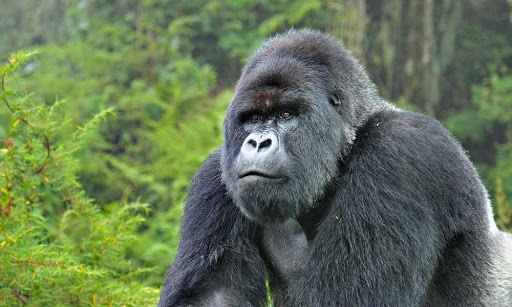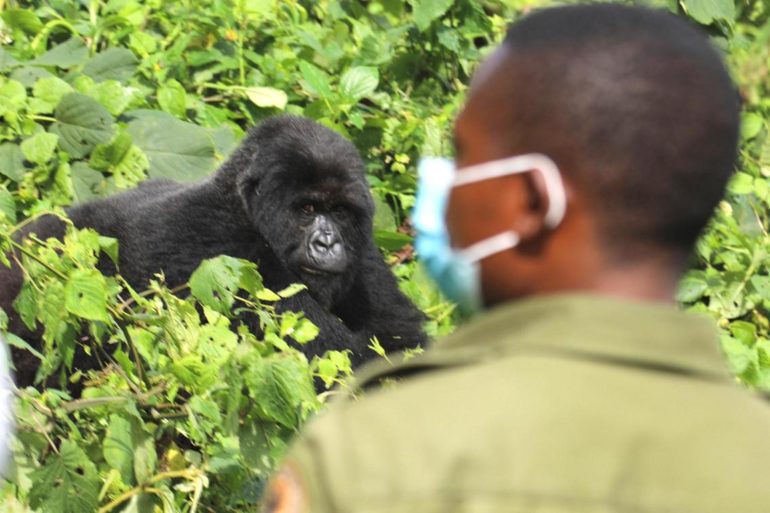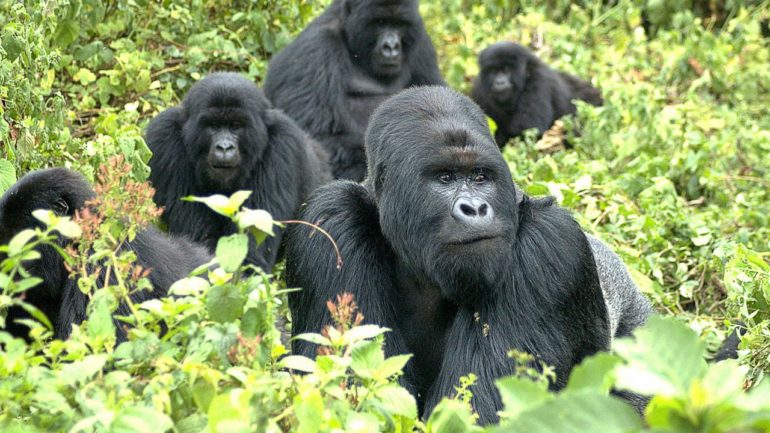In an attempt to keep our closest living relatives safe from the risk of the coronavirus pandemic, Gorillas in three African countries have been put under lockdown, and sanctuaries for other apes, such as orangutans, have been closed for visitors.

Gorillas in Rwanda, Uganda And Congo Put Under Lockdown Over COVID-19 Risk
Amid fears that they might be susceptible to the coronavirus, Gorillas in Rwanda, Uganda and the Democratic Republic of Congo have been put under lockdown, with gorilla tourism being suspended at the moment.
Great apes, being closely related to us, are known to be vulnerable to human illnesses like the common cold and Ebola. Due to this reason, experts fear that they could contract the COVID-19. In fact, apart from habitat loss and poaching, viral diseases are now among the top three threats to the survival of great apes, which is indeed a huge reason for concern.
Mountain Gorillas – also referred to as Gorilla beringei beringei – are endangered animals found only in the high-elevation forests of Rwanda, Uganda and the Democratic Republic of Congo. All three of these countries have seen outbreaks of human coronavirus cases, causing conservationists to worry that these great apes might be at risk too.
Dr. Kirsten Gilardi, Chief veterinary Officer for Gorilla Doctors, which provides veterinary care to gorillas in the forests of Rwanda, Uganda and the Democratic Republic of Congo, says, “We don’t know if it’s infected mountain gorillas; we have not seen any evidence of that. But because mountain gorillas are susceptible to human pathogens, we know that they can develop respiratory illnesses.”
Also Read: Peacocks Spotted Strutting Around In Posh South Mumbai Colony

New Measures And Guidelines Are Being Followed While Dealing With Apes
New precautions have now been introduced by veterinarians and rangers while working with these wild gorillas. According to Dr. Gilardi, social distancing and self-quarantine are extremely important methods for protecting great apes as well.
As per new guidelines issued by the International Union for the Conservation of Nature (IUCN), people must now maintain a minimum distance of 10 meters from great apes, from the usual 7 meters. Human visits are also to be reduced to the minimum needed to ensure the safety and health of these apes. Persons who are ill, or who have been in contact with a sick person in the preceding 14 days are not allowed to go near the apes.
However, great apes are not the only animals that might be vulnerable to catching coronavirus. Recently, a Tiger At NYC’s Bronx Zoo Tested Positive For Coronavirus, prompting new protection measures to be put into place for big cats, as with the great apes.
Also Read: Some Interesting Animals Are Taking Over The Streets Of Popular Cities During Lockdown
First Published: April 13, 2020 3:32 PM




